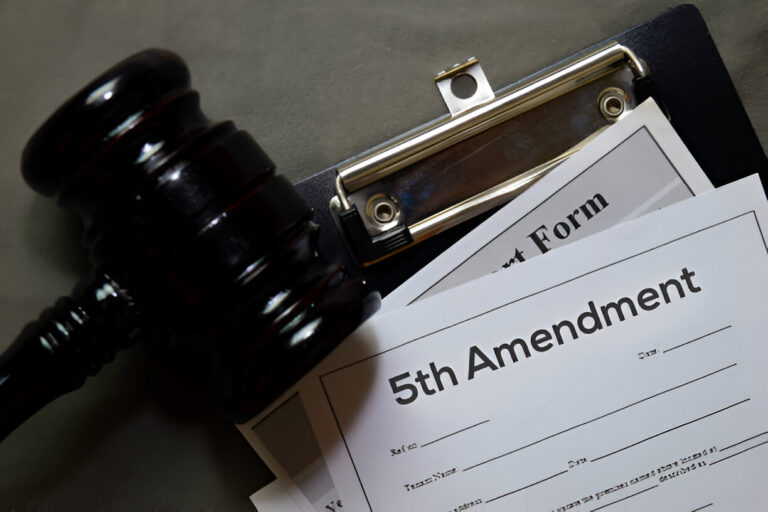Filing a personal injury claim can be daunting, especially when you’re juggling medical expenses, lost income, and the emotional aftermath of an accident. In Colorado, building a strong personal injury claim is critical to improving your chances of securing fair compensation. Whether your injuries resulted from a car crash, slip and fall, or another incident, a well-prepared and thoroughly documented case can make all the difference.
The strength of your claim hinges on key elements such as solid evidence, clear legal strategy, and skilled representation. Proving liability, demonstrating the extent of your damages, and meeting state-specific legal requirements are vital to ensure a successful outcome. Understanding what makes a strong personal injury claim in Colorado will empower you to pursue the compensation you need to recover and move forward.
Clear Proof of Liability
Establishing fault is the foundation of any personal injury claim. In Colorado, the principle of comparative negligence allows the fault to be divided between parties, meaning you must prove the other party’s negligence directly caused your injuries to strengthen your case.
Evidence plays a critical role in demonstrating fault. Police reports, witness statements, photos of the scene, and video footage are all valuable tools in proving liability. Collecting this evidence promptly helps preserve crucial details that may otherwise be lost over time.
The stronger your proof of liability, the better your chances of holding the responsible party accountable. A well-documented case backed by solid evidence significantly improves your ability to achieve a favorable outcome.
Solid Medical Documentation
Medical records are a cornerstone of any personal injury case. Seeking immediate medical treatment after an accident not only safeguards your health but also establishes clear evidence of your injuries. Delays in treatment can allow insurers to argue that your injuries were unrelated to the accident.
Thorough documentation, including medical reports, doctor’s notes, and diagnostic test results, is essential for demonstrating the severity of your injuries. These records serve as a clear, objective link between the incident and the harm you’ve suffered.
Comprehensive medical evidence strengthens your claim by accurately outlining your physical condition supporting your request for compensation for medical expenses and other related damages.
Evidence of Financial and Non-Financial Losses
A strong personal injury claim clearly outlines both financial and non-financial losses. Financial damages include expenses such as medical bills, rehabilitation costs, lost wages, and property damage. Non-financial losses, such as pain and suffering, emotional distress, and diminished quality of life, are equally significant in assessing the impact of your injuries.
Accurate documentation is essential to quantify financial losses. This includes medical bills, pay stubs, and expert testimony that provide clear evidence of the costs incurred. For non-financial damages, personal journals or detailed statements can illustrate how the injuries have affected your daily life and emotional well-being.
Properly evaluating all damages ensures you pursue fair compensation for the full extent of your losses. A comprehensive approach to documenting both financial and non-financial harm strengthens your case and helps achieve a just outcome.
Witness Testimonies and Expert Opinions
Witness testimonies provide valuable support when proving liability and damages. Statements from people who saw the accident or its aftermath can offer unbiased perspectives that bolster your case. In addition, expert witnesses can help explain complex matters, such as accident reconstruction, medical prognosis, or financial losses.
Experts like doctors, economists, and engineers can clarify the long-term consequences of your injuries or provide evidence of fault. The Colorado personal injury attorneys at Dulin McQuinn Young can help coordinate expert testimony and witness statements, ensuring that your case is supported by credible and compelling evidence. This combination makes your claim more difficult for opposing parties to dispute.
Compliance with Colorado’s Legal Deadlines
In Colorado, the statute of limitations for personal injury claims is generally two years from the date of the accident, or three years for motor vehicle accidents. If you fail to file within this timeframe, you risk losing your right to seek compensation, regardless of the strength of your case.
Acting promptly is essential to building a solid claim and meeting all legal deadlines. Consulting an attorney early in the process ensures your case is properly prepared and filed on time, avoiding costly delays or errors.
Missing critical deadlines can derail even the strongest claim, making it vital to stay aware of these legal time limits and take timely action to protect your rights.
Strong Representation Against Insurance Companies
Insurance companies often attempt to minimize payouts by disputing liability or undervaluing claims. Facing these tactics without strong legal representation can make it challenging to secure the compensation you deserve.
An experienced attorney can effectively manage negotiations, advocate for your interests, and counter lowball offers from insurers. Their knowledge of the process helps level the playing field, ensuring your claim receives fair consideration.
With skilled legal representation, your case is treated with the seriousness it warrants, significantly increasing the likelihood of a fair and just settlement.
Thorough Investigation and Documentation
A detailed investigation is key to building a strong personal injury claim. This involves collecting evidence such as accident reports, photos, videos, and witness statements. Analyzing contributing factors—like weather conditions, safety violations, or defective products—can reveal additional proof of negligence that strengthens your case.
Proper documentation establishes a clear link between the accident and your injuries. This comprehensive approach leaves little room for insurers or opposing parties to dispute the facts, making it harder for them to undermine your claim.
A well-prepared case, backed by thorough investigation and solid evidence, significantly improves your chances of achieving a successful outcome.
Consistency and Honesty Throughout Your Case
Consistency in your statements, documentation, and medical treatment is critical to building credibility. Contradicting details, missing appointments, or exaggerating claims can damage your case and give insurers reasons to challenge your claim’s validity.
Honesty about your injuries, recovery process and limitations demonstrates integrity. A strong claim is built on facts supported by clear evidence and professional evaluations. Maintaining consistency ensures your case remains credible and compelling throughout the legal process.

